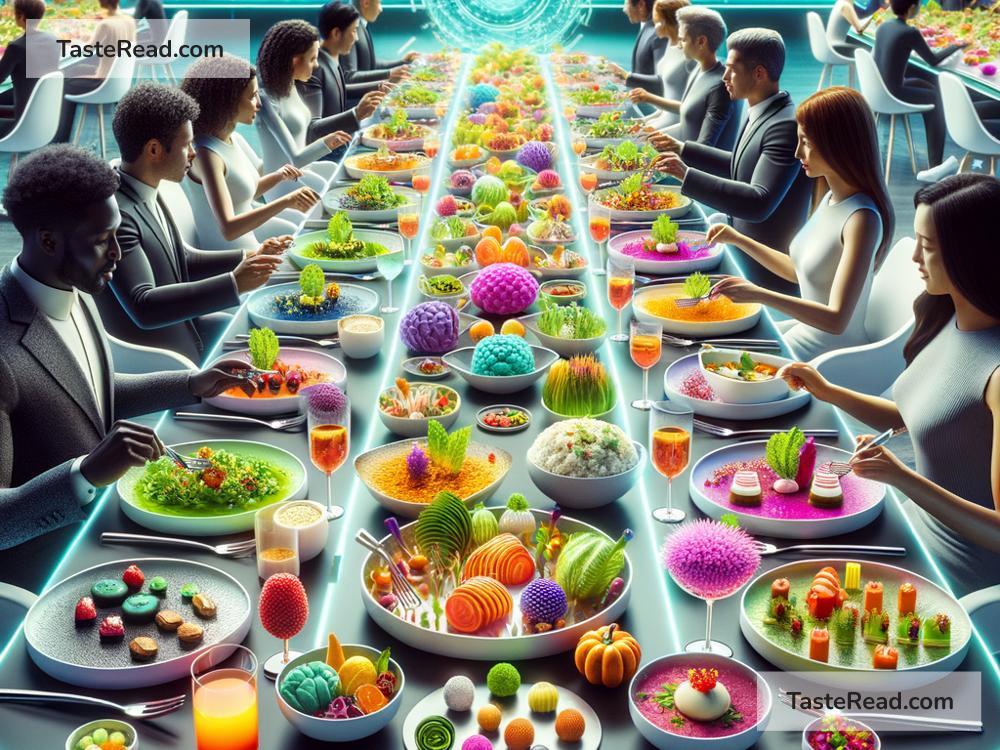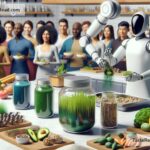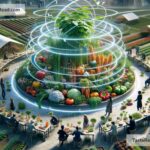The Future of Food and the Importance of Inclusive Systems
The world is changing fast, and so is how we grow, share, and eat food. As populations grow, climates shift, and technology advances, the future of food becomes one of the most important topics to talk about. It’s not just about feeding everyone; it’s about creating food systems that are fair, environmentally friendly, and inclusive so that no one is left behind. Let’s explore what the future of food might look like and why inclusivity matters so much.
New Ways of Growing Food
The traditional way of farming—planting crops in soil—has been around for thousands of years, but it has its limits. It hurts the environment when we cut down forests, overuse chemicals, or waste water. Thankfully, there are exciting ideas for changing how we grow food.
One promising idea is vertical farming. Imagine crops growing indoors in tall buildings instead of sprawling fields. Farmers can control light, temperature, and water, using less land and fewer chemicals. Cities could even grow their own food locally, making transportation of food quicker and easier.
Another big innovation is lab-grown meat. Instead of raising animals for months or years, scientists can now “grow” meat from cells in a lab. This new way of producing meat could reduce greenhouse gas emissions, protect animal welfare, and end the need for large factories that are harmful to the environment.
For those who don’t eat meat, plant-based foods are also exploding in popularity. Companies are making burgers, cheeses, and even fish from plants that look, taste, and feel like the real thing! These plant-based options could play a huge role in ensuring the future of food is both sustainable and diverse.
Technology and Food Systems
Technology is helping farmers make smarter choices, save resources, and grow healthier food. For example, some farmers now use drones to monitor their crops or robots to plant seeds. Others use apps to track weather patterns or analyze their soil to figure out the best crops to grow.
Artificial intelligence (AI) is another game-changer. AI can predict how much food we’ll need, reduce food waste, and make sure supply chains (how food gets from farm to table) work smoothly. Think of it as a digital brain helping farmers and grocery stores care for food from start to finish.
Inclusive Food Systems: Why They Matter
Having cool technology and smart ideas is great, but the future of food isn’t just about big breakthroughs. It has to include everyone, no matter their location, income, or background. Sadly, today, millions of people still go hungry or have poor diets because they don’t have access to fresh, affordable, nutritious foods. At the same time, some people overconsume unhealthy, processed foods, leading to health problems.
Here’s why inclusive food systems matter:
-
Accessibility: Everyone should have access to good food. Cities and rural areas need grocery stores with fresh options. Schools should offer nutritious meals for kids. Governments, businesses, and communities have to work together to make this happen.
-
Affordability: Healthy food shouldn’t be expensive. Some people can’t afford fruits and vegetables because processed foods are cheaper. Building systems that keep healthy food affordable is key to solving this problem.
-
Respecting Cultures: Food is not just fuel; it’s deeply connected to culture and traditions. An inclusive system means supporting local farmers and respecting everyone’s food preferences, whether it’s traditional meals, vegan diets, or allergy-friendly options.
-
Empowering Farmers: Small-scale farmers, especially in developing countries, face many challenges. They may not have access to tools, training, or fair pay for what they grow. In a fair food system, these farmers would receive the resources they need to succeed. Empowering them is important not only for them but for the world’s food supply.
-
Closing the Nutrition Gap: Some communities face malnutrition (not enough food), while others struggle with obesity (too much unhealthy food). Inclusive systems can help balance this by ensuring everyone has access to the right kinds of food.
Fighting Climate Change with Food
Climate change affects what farmers can grow. Droughts, floods, and extreme temperatures are already causing problems. That’s why the future of food has to tackle climate change head-on. Sustainable farming methods, reducing food waste, and eating more plant-based foods can all help. The food industry also needs to cut down on emissions from things like transportation and packaging.
How Can We Help?
Everyone has a role in shaping the future of food. You don’t have to be a farmer, scientist, or policymaker to help. Here’s what you can do:
- Eat smarter: Choose more plant-based meals, support local farmers, and avoid wasting food.
- Speak up: Discuss these issues with friends and family. Raise awareness about the importance of inclusive food systems.
- Support change: Push for policies that make food systems fairer and healthier for all.
The Road Ahead
The future of food is full of exciting possibilities and tough challenges. It’s not just about inventing new ways to grow or eat food—it’s about making sure everyone, everywhere can benefit. Inclusive food systems create a world where food isn’t just a privilege but a basic human right.
As technology and ideas evolve, it’s up to all of us to think about how food connects us—to our bodies, our planet, and to each other. Together, we can build a future where food heals, helps, and includes everyone.


